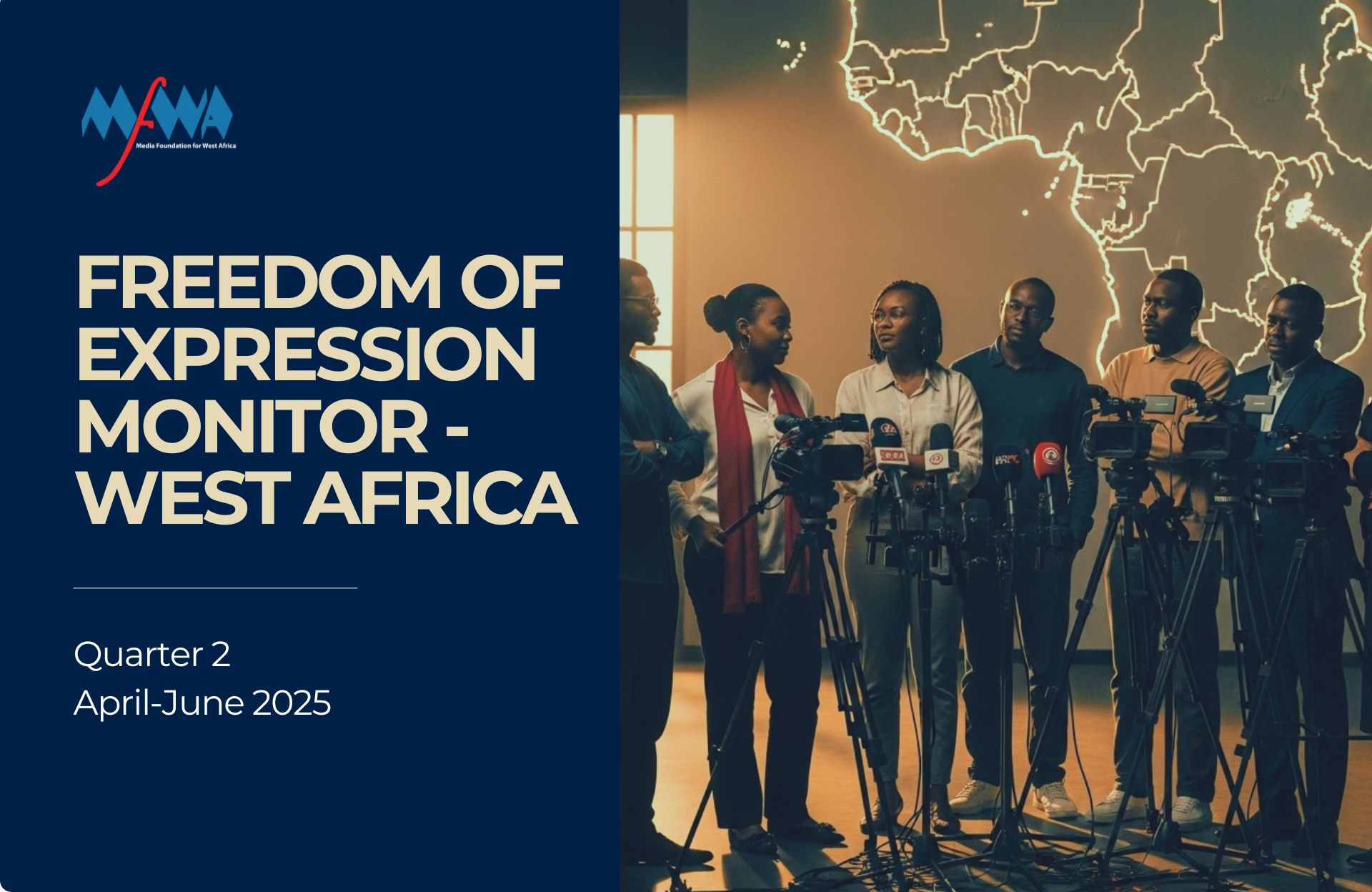This report provides an overview of the freedom of expression situation in West Africa in the second quarter of 2025 (April – June). Despite the critical role press freedom and freedom of expression play in consolidating democratic gains and fostering accountable governance and development, state and non-state actors violate the right to free expression and media freedom with impunity.
The violations documented during the period spanned a wide range of abuses. Journalists and dissenting voices were harassed and intimidated through arrests and detentions, physical assault, threats and interrogations. On their part, media outlets faced suspensions and regulatory sanctions, often for content deemed critical of government authorities. Activists and opposition figures were also targeted, with some arrested or forced into exile for expressing views considered unfavourable to those in power. While the nature of the violations varied, the intent was often the same: to control public discourse and suppress critical and/or dissenting voices.
State actors, particularly state security agencies and media regulatory bodies, were found to be the main perpetrators of abuses against journalists, media outlets, activists, and dissenting voices. The relatively prevalent involvement of state actors in freedom of expression abuses highlights the institutional nature of repression in many countries across the region, where journalists, activists and critical voices are treated as enemies. Some political actors and other non- state actors also contributed to the intimidation of media practitioners and civic actors through threats and physical attacks.
Unfortunately, many of the reported attacks went un-investigated with most of the perpetrators walking away unpunished. A few of the violations, however, received some redress. Five violations cited during the quarter under review and three cited in the first quarter of 2025 were redressed. The Supreme Court of Senegal overturned a media suspension order, some journalists and activists were released from detention, and some media suspensions were reversed by media regulatory bodies.
The report ends with a set of recommendations from the Media Foundation for West Africa to major stakeholders in the region, such as governments, state security agencies and institutions, the media and regional and continental bodies such as the ECOWAS and the African Union. The recommendations call on these stakeholders to create an enabling environment that will ensure that journalists, media organisations, activists, dissidents and other civic actors can operate and express themselves without fear of reprisal.
Click here to access the report.






